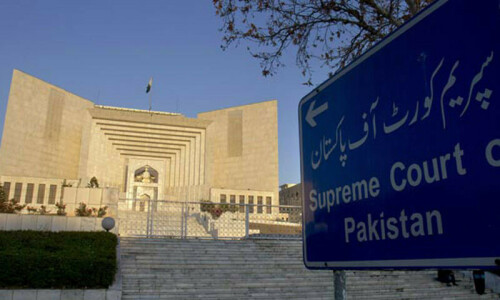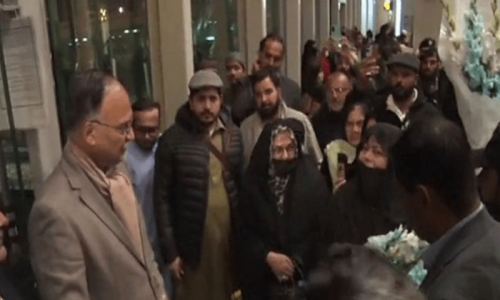JOHANNESBURG: Muzi and his friend Nkwapa were forcibly evicted last year from their shanty homes in Mandelaville in Soweto.
on Tuesday, they were painting banners in a community centre in preparation for their march to the UN summit centre in Sandton on Saturday to express their frustration to world leaders.
They know they are likely that to be arrested and jailed, because the government the other day had declared the march of the Indaba Social Movement illegal.
It will go ahead anyway, say the organizers, who are calling on tens of thousands of people in the Johannesburg townships to join them, and have hired 80 buses to bring in 5,000 desperately poor people from squatter camps as far away as Transvaal .
We will do what is right and not what is legal”, Dale, a spokesman for Indaba, said on Tuesday.
“These people are excluded from events like the summit, even though the world leaders promise them prosperity. They have no voice. They face eviction, electricity price hikes and privatisation of their water.
“They have to use community toilets, their children play in human waste in the streets. Yet the government is paying them 70p a day to paint buildings so that world leaders will see a different Johannesburg. They have a human right to demonstrate.”
On the other hand, Indaba’s lawyers will try to get the government decision overruled, and Muzi and Nkwapa will join thousands at a mass rally at the Alex stadium to whip up more support for the march.
At the same time the quite separate the Landless Peoples’ Movement will be preparing for its march on Saturday.
One of only four groups given permission to demonstrate at the summit, it expects at least 10,000 people from all over South Africa to join in demanding action.
The LPM is part a growing of a network of international groups, subsidized in South Africa by the Ford Foundation, War on Want and others.
It includes giants, such as the Movimento Sem Terra in Brazil, which has occupied millions of hectares of under-used land and handed it to small farmers, and the Via Campesina network of farmers in Europe. The needs of the landless in South Africa, says War on Want, are some of the greatest in Africa.
“The government promised land redistribution, but it hasn’t happened. There is growing frustration. People have been evicted and others have no access to the land.”
The Global People’s Forum will also be marching, from Alexandra township, on Saturday to show world leaders the growing global frustration at poverty in Africa and environmental destruction.
It is expected to be the summit’s biggest set piece. Between 20,000 and 50,000 people are expected: trade unionists, environmentalists, northern aid and development charities, poverty and human rights campaigners, religious and development groups, as well as thousands of the official summit delegates.
“Ordinary people can no longer tolerate the current neglect of the needs of the poor or the deterioration of the environment,” an organizers said.
“This is not an anti-summit march, but a way to express the frustrations of civil society, and the lack of progress at eradicating poverty.”
The forum’s parallel conference meeting in Nasrec has so far attracted more than 20,000 people from 3,000 groups.
One of the features of the summit so far has been the explosion of inter-continental networks, coalitions and partnerships on almost every issue.
It is know as the globalization of the opposition to the liberalizing policies of most governments and institutions, and its growth suggests that a common agenda of opposition is developing.
The organizers of all three marches hope they will be peaceful, but many predict that confrontations with the police, who have been accused of using undue force since the summit began, are inevitable.—Dawn/The Guardian News Service.












































Dear visitor, the comments section is undergoing an overhaul and will return soon.